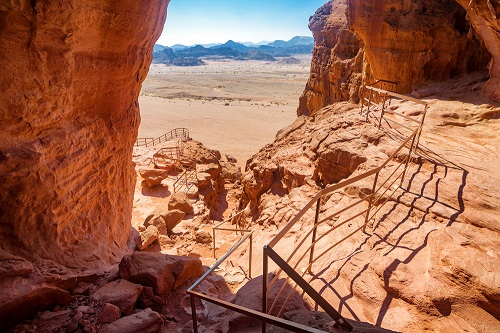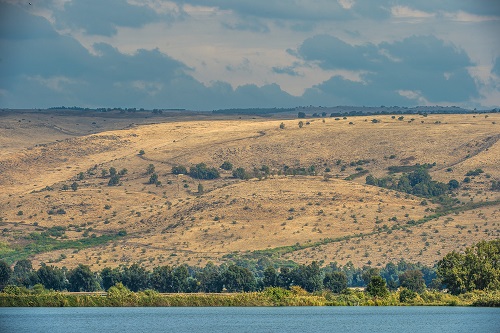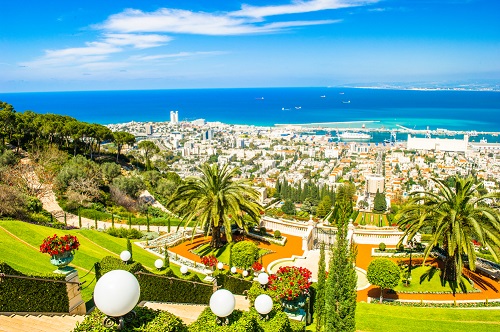If you are living and working in Israel, you should have little difficulty in keeping fit and well during your stay in the country. Israel offers a wide range of sporting and fitness activities, and the wellness industry in the country is flourishing. We will look at some of your options below.Spa breaks, exercise boot camps and wellness centres, plus some retreat options for mental and spiritual equilibrium, can be found across Israel. There is a Facebook group, Keeping Fit in Israel, which has details of events (such as marathons), and which provides an English-language community for the fitness-minded. Experts suggest that Israel could even become one of the world’s top fitness destinations.
Hiking is popular, and you will find it an ideal way to see some of the beautiful Israeli terrain. There are trails for all levels of experience. The Israel National Trail does not take you near any politically controversial areas, and Israel is considered to be a safe country in which to go hiking. If you are thinking of doing the entire trail, it is best to do so from February to May, when the weather is mildest. September to early December is also an option. It takes around 45-60 days to hike the entire trail, but obviously you can take it in sections.
The trail is well marked by three stripes: white, blue and orange. White signifies Mt. Hermon in the north; blue signifies the coastline; and orange signifies the desert. You can stay at campsites along the way, in hostels, or with the ‘trail angels’ (private homes or kibbutzim, which are free or low cost).
You are likely to find it too hot to hike extensively in the summer. Be aware that Israel has a very hot climate during some parts of the year, and if you are planning to do much outdoor activity, make sure that you take sensible precautions, such as:
• Wear appropriate sunscreen
• Take a supply of water
• Wear clothes that are light but cover you
• Wear suitable shoes
• Take a hat

The use of personal trainers has become increasingly popular in recent years, and even if you are in one of the urban centres, such as Tel Aviv, you will find parks in which you can run, as well as a large number of gyms. The Hebrew University (Giv’at Ram) in Jerusalem has a gym attached, and you will also find gyms in many of the larger hotels. Outdoor gyms and exercise parks, which you can access for free, are also readily available.
Israel has a long coastline and, because it is a narrow country, you will never find yourself very far from the sea. There are therefore various opportunities for beach and water sports. Most coastal centres will have a ‘talayot’ or promenade, which are popular with walkers and runners.
According to Israeli tourism authorities, the country has the highest number of diving instructors per capita than anywhere else in the world. Israeli has boasted Olympic and World Champions in windsurfing and kitesurfing, among other sports. Eilat is considered to be a world class diving centre, with many instructors and beautiful diving conditions. Caesarea has an underwater museum, which you can dive down to and visit the remains of the ancient port.
Surfing is an option in many centres, including Eilat and Galilee, and you can take up more adventurous surfing options, such as kitesurfing, along the coast. Eilat and other centres also offer sailing, catamarans and sea kayaking at Olympic standards. Paddle boarding, jet skiing and water-skiing are also available.
If you are feeling really adventurous, Israel offers a wide variety of extreme sports. For example, you will find options in the Negev Desert, the Dead Sea Region, and the Galilee and Judean Hills. On offer are:
• Skiing
• Paragliding
• Snowboarding
• Sandboarding
• Kayaking
• Climbing
• Canyoning
• Caving
• Mountain biking
• ATV quad biking
The area around the Dead Sea has the longest cave in the world; Mount Hermon offers you the chance to take part in some winter sports; and sandsurfing in the Negev is another possibility.
Cycling is also growing in popularity in Israel, and the Negev Desert and the regions around Galilee have cycling trails. Efforts have been made to create biking trails at different levels of difficulty. You will be able to hire a bike with ease.

Israel has not hitherto been a major golfing destination, but this is changing, with the establishment of the 18-hole Pete Dye course at Caesarea (the only full 18-hole course in Israel) and the planning of more golf courses. The Israeli Tourism Ministry has announced plans to build 16 more courses and intends to position Israel on the golf tourism map globally. Construction will span 15 years, and the project is estimated at NIS 760 million (US$200 million).
Football is a popular sport in the country, and Israel has a national football team (נבחרת ישראל בכדורגל, Nivḥeret Yisra'el BeChaduregel). You may find a local amateur side.
If you are living in Israel or simply visiting, you should have no difficulties in following a healthy diet. Israel’s cuisine, with its emphasis on salads, fish, legumes, lean meat and vegetables, is said to be one of the world’s healthiest: a classic Mediterranean diet. Processed foods are not as popular as in other developed countries.
Israel is the vegan capital of the world, with 5.2% of the population adopting a plant-based diet. You will find over 400 vegan- or vegetarian-friendly restaurants across the country, particularly in Tel Avid. Domino’s Pizza and Ben and Jerry’s ice cream chose to launch their first vegan options in Israel.
Lastly, if you are resident in the country, make sure you safeguard your mental and emotional health. Monitor your alcohol consumption; make sure you eat properly; get plenty of exercise; and keep in contact with friends and relations. It is compulsory to be signed up with the national health insurance scheme (in the form of one of the four main ‘sick funds’), and your employer must register you with private health insurance as well.

